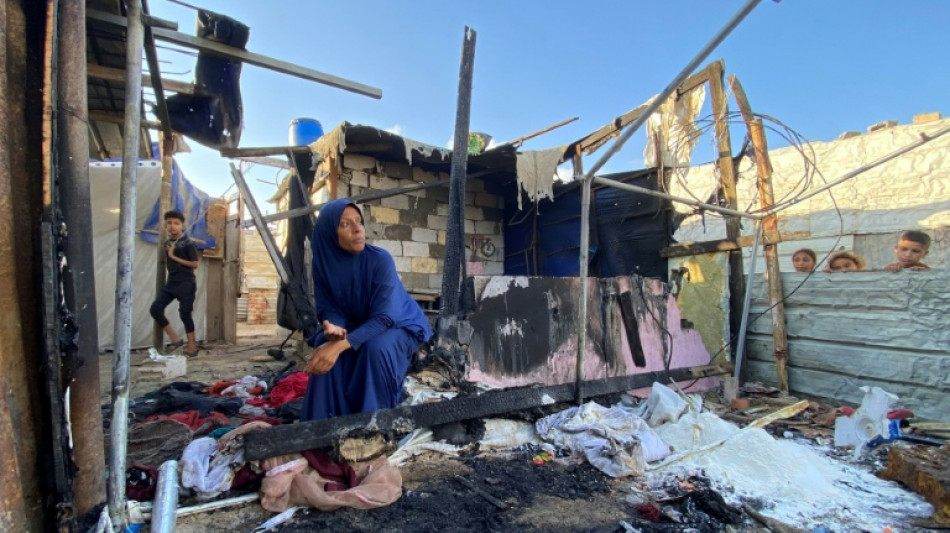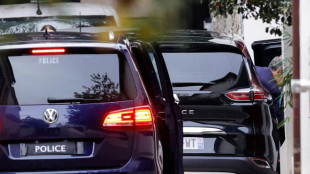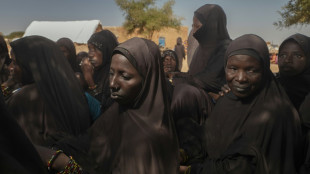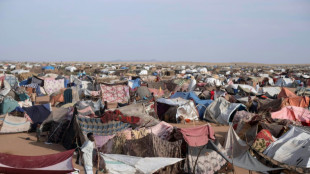

Israel security cabinet to discuss Gaza war plans
Israel's security cabinet was set to meet on Thursday to discuss military plans in Gaza, as the families of hostages launched a desperate plea for help aboard a flotilla headed for the Palestinian territory.
The meeting comes as international outrage over the dire humanitarian situation in Gaza has ratcheted up pressure on Israel, with UN agencies warning of famine in the devastated territory.
An Israeli government official told AFP that the meeting would start at around 1500 GMT.
Israeli media say Prime Minister Benjamin Netanyahu is set to seek approval to expand military operations, including in densely populated areas where hostages are believed to be held.
This comes despite growing concern among Israelis about the fate of the remaining hostages, some of whose families set sail from the port of Ashkelon on Thursday seeking to approach the Gaza Strip.
Organisers said they hoped to "get as close as possible to their loved ones".
Speaking in English through a megaphone, Yehuda Cohen, whose son Nimrod is among those held captive, shouted: "Mayday, mayday, mayday. We need all international assistance to rescue the 50 hostages who are nearly two years held by the hand of Hamas."
- 'More destruction' -
Ahead of Thursday's meeting, rumours have been rife in the Israeli press about disagreements between the cabinet and Israel's military chief, Lieutenant General Eyal Zamir, who is said to oppose plans to fully reoccupy Gaza.
On Wednesday, Defence Minister Israel Katz had weighed in on social media saying that "it is the right and duty of the chief of staff to express his position", but the military must ultimately respect any policies adopted by the government.
In a statement released by the military on Thursday, Zamir underscored his independence, vowing to "continue to express our position without fear".
"We are not dealing with theory -- we are dealing with matters of life and death, with the defence of the state, and we do so while looking directly into the eyes of our soldiers and citizens," Zamir said in the statement.
In Gaza, meanwhile, fears grew over what an expansion in combat operations would entail.
"Ground operations mean more destruction and death. There is no safe place anywhere," said Ahmad Salem, a 45-year-old from Jabalia refugee camp now displaced to western Gaza.
"If Israel starts and expands its ground operations again, we'll be the first victims."
The Israeli government is under mounting international and domestic pressure to end the war.
In Tel Aviv on Wednesday night, hundreds took to the streets calling on the government to secure the release of the remaining hostages.
Out of 251 hostages captured during Hamas's 2023 attack, 49 are still being held in Gaza, including 27 the military says are dead.
- 'Unrealistic costs' -
Global criticism has also soared over the suffering of the more than two million Palestinian inhabitants of Gaza, after the United Nations warned that famine was unfolding in the territory.
On Thursday, displaced Gazan Mahmoud Wafi said that the prices of available food remained high and erratic.
"We hope that food will be made available again in normal quantities and at reasonable prices, because we can no longer afford these extremely high and unrealistic costs," the 38-year-old told AFP from Al-Mawasi, near Khan Yunis.
Gaza's civil defence spokesman Mahmud Bassal said at least 35 people were killed in Gaza on Thursday following air strikes in multiple areas, with dozens more wounded.
In late July, Israel partially eased restrictions on aid entering Gaza, but the United Nations says the amount allowed into the territory remains insufficient.
Amjad Al-Shawa, head of the Palestinian NGO Network in the Gaza Strip, told AFP that lengthy inspection procedures at entry points meant few trucks could come in.
"What is currently entering the Gaza Strip are very limited numbers of trucks -- between 70 to 80 per day -- carrying only specific types of goods," he said.
The UN estimates that Gaza needs at least 600 trucks of aid per day to meet its residents' basic needs.
L.Sastre--MP




